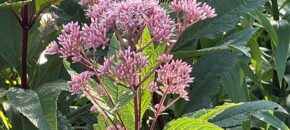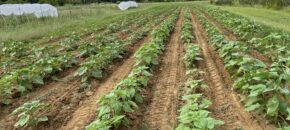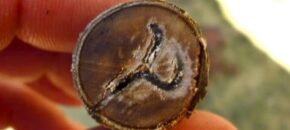THIS WEDNESDAY – Nursery & Ornamental Track at the 2024 NJ Agricultural Convention and Tradeshow: Pathways to Grow Farm Viability. Online registration is CLOSED – IN-PERSON Registration is OPEN – $75 for 1-day pass (equivalent to $12.50 per PP2 Credit!) Where: Harrah’s Casio – Atlantic City – Wildwood 2&3 Session 1 (Morning) 9:30am – 11:30pm […]
Continue reading...EPA Update on the Use of the Pesticide Chlorpyrifos on Food
The U.S. Environmental Protection Agency (EPA) is issuing an update on the use of the pesticide chlorpyrifos on food. Chlorpyrifos is an organophosphate insecticide used for a large variety of agricultural uses, including soybeans, fruit and nut trees,… Read More »
Continue reading...2024 Central Jersey Turf and Ornamental Institute

March 6, 8:30am to 4:00 pm Monmouth County Agricultural Building 4000 Kozloski Rd. Freehold , NJ 07728 Registration: $75 (includes coffee, light refreshments in the morning and lunch) Available Pesticide Credits: Core – 2 units 2- 3 units 3A- 5 units 3B- 5 units 3C- 1 unit 6B- 3 units 8C- […]
Continue reading...2024 Central Jersey Vegetable Growers Meeting

March 8, 8:30am to 4:00 pm Monmouth County Agricultural Building 4000 Kozloski Rd. Freehold , NJ 07728 Pesticide Recertification Credits: Core (2), PP2(6), 1A (6), 10 (6) Registration: $30 (includes coffee, light refreshments in the morning and lunch) To register, contact Cathy VanBenschoten at the Rutgers Cooperative Extension of Monmouth County Office 732-431-7260 or […]
Continue reading...Exotic Ambrosia Beetle Borers of Nursery Plants

General Overview: There are 30 non-native ambrosia beetle species in North America but only a half dozen are serious insect pests within nurseries, pecans & apples. The Xylosandrus species of beetle borers are native to southeast Asia & were first reported in the United States during the early 1930s (black stem borer). Today they are […]
Continue reading...Hackettstown Livestock Auction Results for January 16, 2024
This auction sells: lambs, sheep, goats, calves, beef cattle, pigs, rabbits, and all types of heavy fowl. Auctions are held every Tuesday with the first sale beginning at 10:00 am and ending with the last sale at 5:30 pm. Hay, straw, grain, and firewood are also for sale. Hackettstown Livestock Auction Farm Fresh Eggs available […]
Continue reading...